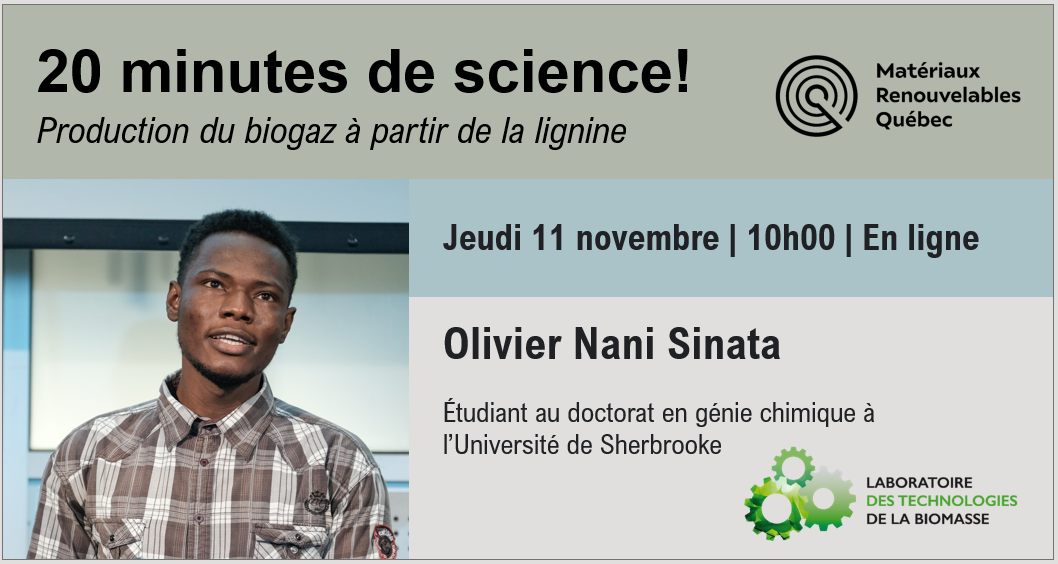20 minutes of science with Olivier Nani Sinata (BTL-UDeS)!
11 November 2021
Don’t miss Olivier Nani Sinata’ 20 minutes of science on Thursday, November 11, from 10-11am!
The presentation will be in French.
Nani is an African of Cameroonian origin who is doing his PhD at the Biomass Technology Laboratory since January 2020. He is a design engineer in renewable energy and was trained at the Ecole Nationale Supérieure Polytechnique de Maroua. His love for renewable energies and their various applications is born from the deplorable energy situation that some Sahelian localities in particular and the world in general are going through. He has knowledge in the design and realization of photovoltaic and thermal solar installations, on the technology of horizontal wind turbines as well as on the dimensioning of fixed and floating dome digesters. During his career, he has carried out numerous projects related to energy and environmental issues. Driven by his great curiosity, his insatiable desire to learn and to take up challenges, he has the chance to work today on “biogas production from ash-rich lignin”.
Summary of his work
In a context of sustainable development, the interest for biomass and more particularly for lignocellulosic materials is growing. Their exploitation in paper industries and biorefineries for the valorisation of cellulose and hemicellulose leads to the production of millions of tons of lignin. Thanks to its aromatic composition, lignin is a promising candidate to replace some petroleum products and for the production of platform molecules or materials. However, the complex structure of this natural polymer and its hydrophobicity limit its use. Nowadays, lignin is mainly used in combustion for industrial heat production. However, this way of valorisation is sometimes hindered when the ash concentration of some types of lignin is high. It is with the aim of answering this specific problem that a new way of valorisation of lignin rich in ash has been proposed, using anaerobic degradation to produce biogas. As lignin is particularly recalcitrant and inhibitory for the microorganisms responsible for methane production, a chemical pre-treatment had to be developed in order to produce lignin fractions that are easily degradable and free of phenolic rings which are the main inhibitors.
Curious to know more?
Log on Thursday, November 11, at 9:55 a.m. at the following link:
Meeting ID: 680 2019 7809
Secret Code: 260 235
The BTL offers a unique window in terms of research and development in the field of valorizing different sources of residual carbon, and now, also food industry related challenges. Discover our research fields, our services and our recruiting opportunities.


